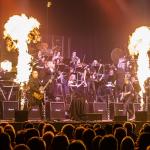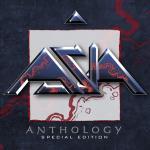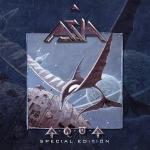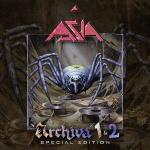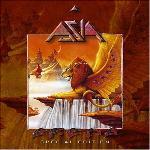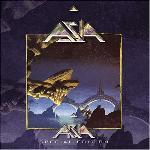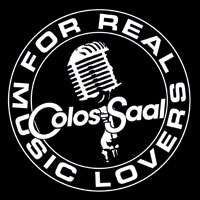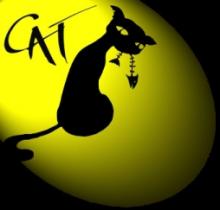ASIA
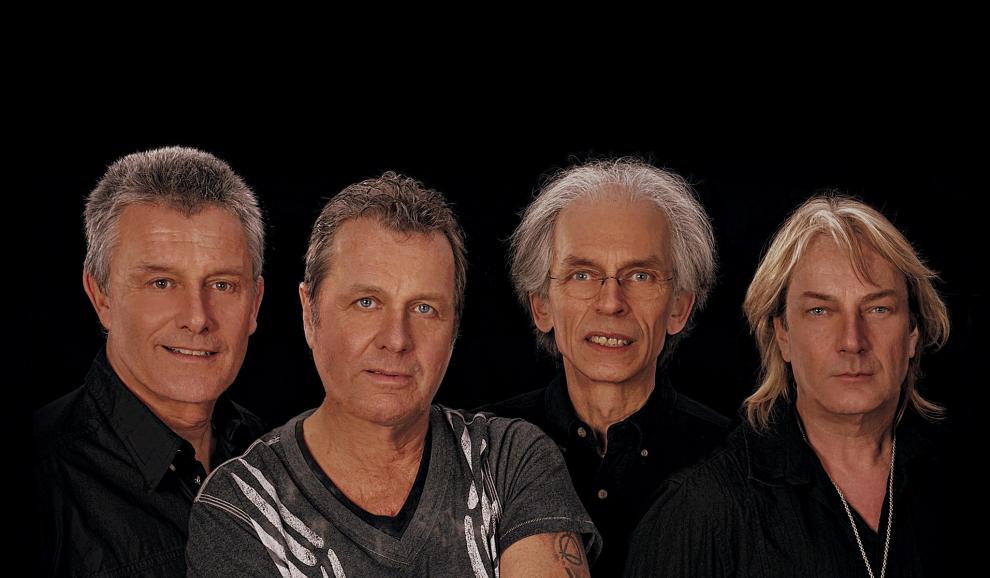 Biografie
BiografieAsia’s debut album exploded onto the music scene in March 1982 with several Top 10 singles and sales exceeding 7 million copies. This “supergroup”, featuring bassist/vocalist John Wetton, drummer Carl Palmer, keyboardist Geoff Downes, and guitarist Steve Howe, was the logical successor to their collective bands of the 70s – Yes, ELP, King Crimson, and The Buggles.
The group came together in the spring of 1981. John Wetton’s acclaimed progressive rock band UK had collapsed a few years earlier. With the help of manager Brian Lane, he wanted to form a new group with guitarist Steve Howe, best known for his work with British Prog superstars, Yes. Drummer Carl Palmer came into the fold next, having just completed a decade of platinum releases and sold out tours with Emerson, Lake & Palmer. Keyboardist Geoff Downes, who replaced Rick Wakeman in Yes for the Drama album, had previously been half of the pop duo The Buggles. They stormed the charts in 1979 with the timeless classic “Video Killed The Radio Star”.
Labelled a “supergroup” by critics and the media from the onset, it was a tag they had never asked for. Asia’s music (and rockíníroll charisma) developed organically and effortlessly. Though all four men had seen chart-topping success in their previous bands, Asia had a special chemistry that fans and music industry insiders were quick to recognize.
“The band sort of came together naturally,” says Carl Palmer. ” It wasn’t something which was forced. We all wanted to play together. We had a great time doing it.” The band was signed in the summer of 1981 by Geffen Records A&R whiz John Kalodner, fresh out of a long affiliation at Atlantic Records.
The first Asia album went into production in June of 1981 with producer Mike Stone at Marcus Studios and Virgin Townhouse in London. Stone, who had worked on hits for Journey and Queen, also knew the band had an amazing musical ability. The band spent five months writing, arranging, and recording nine songs for its debut that included such classics as ” Heat Of The Moment”, “Only Time Will Tell”, and “Sole Survivor.”
“I think that we all knew as soon as we recorded the first few songs that it was going somewhere special,” says Wetton. “I don’t think we knew, however, until we recorded ‘Heat Of The Moment’ that we had a monster on our hands. I think that once we had done that, everyone knew that it was going to be successful.”
As soon as the album was completed, Geffen knew it had a winner on its hands. The upstart label immediately began turning the wheels of its enormous promotional machine weeks before the LP’s release, to help propel the album to the top of the charts. Asia had only weeks to rehearse for a 30 city US tour that commenced on April 22 in Potsdam, NY, of all places! By the time the band reached the 12th stop on tour (Rochester, NY) on May 5th, the debut album had already hit #1 on the Billboard charts.
Fortunately for the band, a new music media outlet called MTV premiered on cable channels in 1981 throughout the US and in over 50 million households. (Downes’ hit song with The Buggles “Video Killed The Radio Star” was the first song ever played on the exciting new channel). Asia, aware the network’s impact on the industry, began shooting videos as soon as the album was finished. The result was a rock’n’roll marriage made in heaven.
Asia became one of the most played acts on MTV in 1982. Since most people were intrigued with the new concept, viewership often reached several hours a day. “You’re looking at a parallel success here,” says Wetton. “MTV and Asia were successful at the same time… of course, MTV was instrumental in Asia’s success, but then, Asia was also instrumental in MTV’s success.”
Throughout most of ’82, Asia ruled the radio airwaves and MTV; sold out every date on its tour; and the LP, Asia, crushed all the competition at record stores around the world. The music industry had been in a major slump that year, and less than 15% of releases in 1982 made a profit. Asia was one of the year’s big exceptions. By the time the band released its second album, the debut album had sold over 6 million copies worldwide and was the best seller of 1982. It had stayed at the #1 spot for an incredible 9 weeks!
The band toured non-stop and continued to see the huge success they had initiated grow even larger. They won almost every BEST NEW ACT award the industry had to offer in 1982.
The success, however, was too much, too soon. By the time they assembled to begin their second album in the winter of 1983, cracks had already begun to appear in the foundation. Creative tensions and egos – not to mention the pressure of having to top the best selling album of the previous year – made the second album’s recording sessions far less enjoyable than the first. Recording the album outside of their native England (in Morin Heights, Quebec) added to the difficulties.
The second album, Alpha, did ship platinum and contained the hits “Don’t Cry” and “The Smile Has Left Your Eyes”, but Geffen’s hands-on pressure to score undeniable radio pop hits was starting to show. “We had a precious success,” remembers Wetton. “We came in at the top, but it was an illusion to think we’d stay there. The band was still finding its feet as a musical entity.”
Personal conflicts on the Alpha tour began pulling the band apart. In October, an announcement was made of a huge MTV and Westwood One Radio Network simulcast of the band’s sold out December show at Tokyo’s Budokan arena. Instead of a sense of euphoria within the band, John Wetton departed Asia in a move that stunned the rock world. He was replaced at the last moment for the Asia In Asia broadcast and Japanese dates by Palmer’s ex-ELP band mate, Greg Lake. Lake’s time with the band, however, would be short.
The band was re-constructed in 1984, with Wetton back on board. After a brief period of time working on the next album, Steve Howe departed to form GTR with former Genesis guitarist Steve Hackett. Mandy Meyer of Krokus replaced Howe, and in 1985 the group released its third album, Astra. The album had a hit with “Voice Of America,” but compared to the massive success of the first two albums, the members viewed Astra as a disappointment.
They never toured for Astra, and soon after Asia fell apart. Although no formal break-up announcement was made, within months the members were all off doing different projects. “We broke up too soon,” remembered Carl Palmer during an interview in 1990. We were unique then, and we still are: English rock with a technical side; sophisticated rock mixed in with melodies and singles. It was taboo in those days, and you very rarely hear that today either.”
Palmer regrouped in 1987 with Keith Emerson and unknown bassist named Robert Berry to form 3. Wetton started a musical project with his Roxy Music band mate, Phil Manzanera, and Downes did a myriad of projects including working with both Mike Oldfield and Greg Lake, as well as producing Steve Howe’s new band, GTR. He also released an experimental instrumental solo album called The Light Programme under the moniker, “The New Dance Orchestra”.
By 1990, Wetton, Palmer and Downes were ready to give it another go. They regrouped with American guitarist Pat Thrall (known for his work with Pat Travers and Glenn Hughes) and recorded new material. The new songs eventually surfaced as extra tracks in a best-of collection on Geffen, called Then & Now. “We were so musically compatible.” said Wetton, at the time. “We had tried other things and had been frustrated by them. (1990) seemed to be the right time for Asia again.”
They were placed on a summer tour of Europe with the unlikely headliners, The Beach Boys, where they played to 25,000 seat open arenas. Needless to say, the band was nervous about the audience reaction. However, they need not have worried as Asia received overwhelming positive response on every show of the tour.
“Each of us had been doing mainly studio work just prior to that tour,” says Downes. “When it gets right down to it, we all missed playing together and the feeling of a band, the excitement of playing live and getting on a big stage again.”
The reunion lasted nearly two years, including a memorable show that was filmed in Moscow’s Red Square. “What I remember about that show,” jokes Palmer, today, “is that we had Gorbachev’s limo and we had to wait two hours for lunch from McDonald’s!”
Shortly after the show in Russia, the band took another break. Palmer had the chance to reform Emerson, Lake & Palmer and did so in late 1991 with the Black Moon album. Wetton launched his long-awaited solo career, recording the critically acclaimed Battle Lines. Geoff Downes decided to carry on with Asia, reforming the band around him. In 1992, he enlisted newcomer John Payne on bass and vocals and recorded the Aqua album. The two men would record together for several years, working with various other musicians.
Palmer had a successful run again with ELP until the fall of 1998, when that band, too, went on hiatus. With John Wetton in-between solo projects and Downes willing to entertain offers for a reunion, suddenly all three men were available again to regroup as Asia. Due to his commitments with the re-formed Yes, Steve Howe was unavailable. However, the three other members all exchanged phone calls, and by Christmas of 1998, a reunion was looking possible.
The band announced plans for a world tour to begin on June 11th, 1999. After the tour, they had hoped to record a new album, with Downes and Wetton already writing songs again. Unfortunately, it was never to be. Almost as quickly as the whole project had begun, it dissolved. The event which so many had hoped for would have to wait for another day…
Shortly thereafter, Carl Palmer and John Wetton reunited in a new band called Qango. Featuring guitarist David Kilminster and keyboard player John Young, the group played a series of showcase dates in the UK in February 2000 which featured classic ELP, ASIA, and King Crimson material, along with some new material.
The shows were packed and well received, prompting the band to do several encores each night. “It was a wonderful feeling to be back on stage playing this material with our new band,” said Palmer. Wetton added, “The shows went down very well and have made us excited about continuing with more tours and the recording of new material.” Once again, however, this lineup was short-lived and, after the triumphant UK tour, Qango went their separate ways.
For the next few years, the original members remained busy with their individual projects. John Wetton returned to his solo career; Carl Palmer assembled his own outfit, “The Carl Palmer Band”. Steve Howe toured extensively with Yes, and Geoff Downes continued on with his own Asia lineup.
Fate intervened in 2005 when Wetton and Downes found time to work together on new material that would eventually become the ICON album. The duo toured on the heels of the release, revisiting the glory years of Asia with standing ovations every night for the classic tunes.
But as the old saying goes, patience is a virtue…
Like a bolt from the blue, the stars aligned once again in early 2006. In April, all four original members of Asia confirmed that they would be reuniting for a world tour to celebrate the 25th anniversary of the band’s creation and debut album.
“This is the REAL ASIA,” says guitarist Steve Howe. “There have been other versions of the band, but this original line-up is the one that the public truly embraced. Since we only toured for a couple of years, it will be nice, finally, to play for audiences all over the world, many of whom never had a chance to see the group in concert.”
An American tour was confirmed beginning in August, followed by dates in the UK, Japan, and Latin America. The sold-out Japanese tour yielded a live release, Fantasia: Live in Japan. The setlist for the tour featured the entire debut album, heritage tracks from each band member’s pre-Asia bands as well as a few choice tracks from Alpha. As a special nod to fans who had stuck with the band over the years, an acoustic version of “Ride Easy”, a b-side from the debut, was played live for the first time.
The tour continued well into 2007 with shows in North America and Europe and the band entered the studio for what would be yet another dream-come-true for fans; the first full studio album from the four original members of Asia since 1983’s Alpha, entitled Phoenix.
Geoff described the enthusiasm within the band for the new project: “It’s great finally to give some new music to those Asia fans who have remained with us patiently all these years.” Steve emphasised the band’s ability to focus and called the new album “an enormous test, a challenge worthy of our intent. All the distractions usually evident vapourised, as we focused on collaborating to select and arrange these new songs, all in the style of Asia.” Carl pointed to the dynamics within Asia that resulted in Phoenix, indicating the “chemistry and energy that comes out when the four of us are working together and the new material reflects this.” For his part, John marvelled at how far the band had come from their tumultuous early years in the 1980s: “Each one of us is comfortable as a human being, and the sound on the CD Phoenix finally reflects the collective maturity of these four people who are not only eager to explore, but also relaxed enough to luxuriate in the strength of the material.”
Fans and critics world-wide welcomed the new release enthusiastically, and the band hit the road once again through 2008 and 2009 touring in the UK, North America, Japan and Europe. Touring for Phoenix culminated in the summer of 2009 with a number of European festivals and a tour with Yes, featuring Steve Howe performing onstage with both bands. A live video from those shows, Spirit of the Night, was later released in 2010.
With the touring cycle for Phoenix behind them, Asia returned once again to the recording studio for a follow-up album, Omega, this time joined in the studio by producer Mike Paxman (Status Quo, Uriah Heep). Immediately upon its release they launched their 2010-2011 Omega world tour beginning with dates in Europe and Russia, before heading off to Japan, North America, Central America and South America, along with a second tour leg of Europe, closing off the Omega tour on June 18, 2011 in Malanga, Spain. A third official live release, Resonance, would be recorded in Switzerland for release in the autumn of 2012.
With six years of touring and two new studio albums under their collective belts, the four members of Asia decided to take a much-deserved break at the end of the Omega tour, with each returning to their own solo and other non-Asia band projects. 30 years after the Drama album, Geoff Downes accepted an invitation to return to Yes for a tour and the recording of a new album, Fly From Here. Steve Howe, in addition to his duties in Yes, recorded a new solo album, Time. Carl Palmer toured Europe and North America with his solo band, while also releasing the third volume in his Working Live series. John Wetton released and toured in support of his own new solo album, Raised in Captivity, and began to lay the groundwork for a reunion with his former UK bandmates, Eddie Jobson and Terry Bozzio.
Early 2012 brough the band back together in the studio, once again with Mike Paxman, to record their third post-reunion studio album, XXX, commemorating the 30th anniversary of the band. Once again, fan and critical reaction was exemplary, with many hailing the release as their best since the 1980s. An extensive world tour is scheduled for late 2012 and planning is already actively underway for 2013 and beyond.
The heat goes on, indeed!
Written by Bruce Pilato and Dave Gallant (August 2012).
Quelle: https://originalasia.com/about/Discografie1982 - Asia
1983 - Alpha
1985 - Astra
1991 - Live In Moscow (Live)
1992 - Aqua
1994 - Aria
1996 - Arena
1997 - Live In Philadelphia (Live)
1997 - Live In Osaka (Live)
1997 - Live In Köln (Live)
1997 - Live At The Town & Country Club (Live)
1997 - Archiva
1999 - Rare
1999 - Live Acoustic (Live)
2000 - Aura
2002 - America: Live In The USA (Live)
2002 - Alive In Hallowed Halls (Live)
2003 - Live In Buffalo (Live)
2004 - Live in Massachusetts ‘83 (Live)
2005 - Enso Kai - Live At The Budokan Tokyo 1983 (Live)
2005 - Live in Zürich (Live)
2004 - Silent Nation
2007 - Fantasia: Live In Tokyo (Live)
2008 - Phoenix
2010 - Omega
2012 - XXX
2014 - Gravitas
2014 - High Voltage Live (Live)
2017 - Symfonia (Live In Bulgaria 2013 – With The Plovdiv Opera Orchestra) (Live)
www

